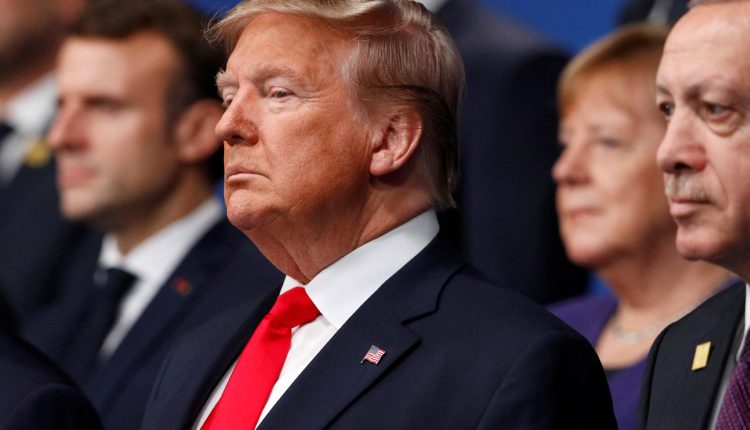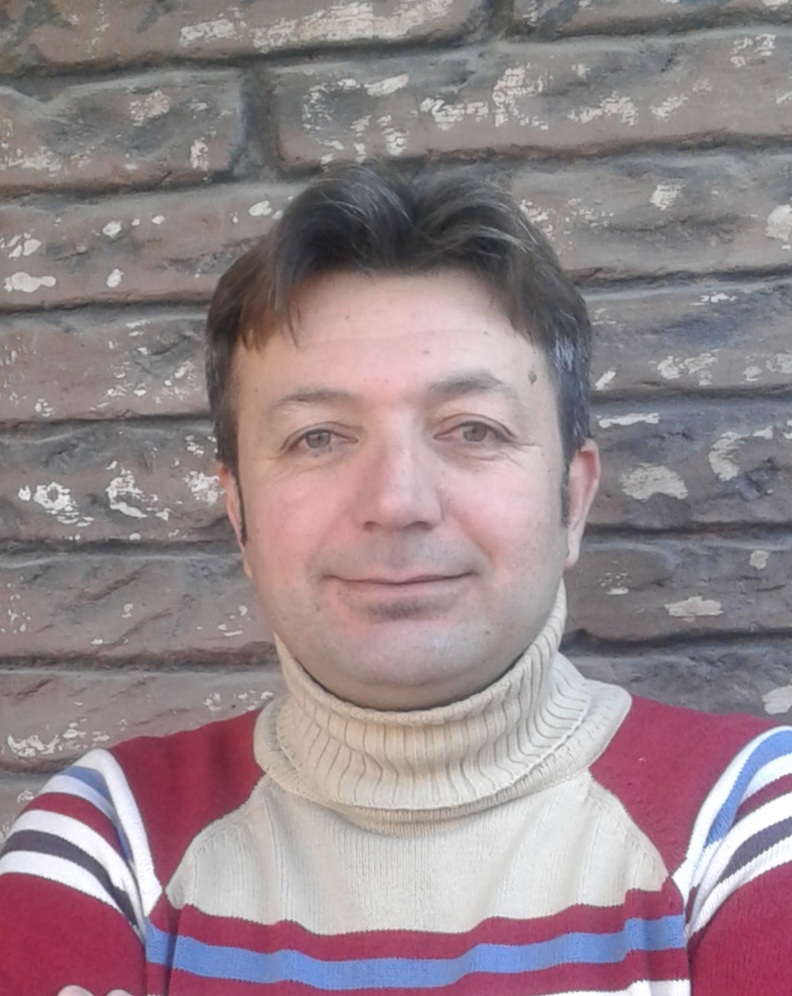Trump, Rojava and the Jihadist
By Lazghine Ya'qoube
The hard- to- explain flurry of visits paid to the Syria capital by regional and global powers since the rise to power of Ahmed al-Sharaa late in December 2024 transcends by all appearances Syria’s national borders.
Syria’s hard-to-define state of affairs since the December blitzkrieg, which saw the collapse of the regime of Bashar Assad, has created an enormously altered regional geopolitical condition, upending many expectations.
The recent far and go between encounter in Saudi Arabia’s capital, Riyadh, bringing together the U.S. President, Donald Trump, and al-Sharaa- who once pledged allegiance to al-Qaeda– serves as a major diplomatic breakthrough in the region and acts as a colossal shift in the U.S. approach to the largely divided country.
While Assad departure marked a fundamental shift in the geopolitics of the Middle East, al-Sharaa’s rise to power signals yet a more confoundingly critical turning point in Syria’s decades- long posture, setting the stage for new drastic regional and global power dynamics.
Regardless of al-Sharaa nebulous pedigree, the meeting in itself is rule- breaking and pretty much historic. The last meeting between the nation’s leaders dates back to March 2000, in Geneva, Switzerland.
Ironically, then U.S. President Bill Clinton- serving as the key mediator in the marathon- like peace talks between Syria and Israel- sought unsparingly to convince the critically ill Hafez Assad, Bashar’s father, to give the okay to resume the stalled negotiations. At the time, Syria was Israel’s main rival in the region. Today, many things seem to have changed.
Back in Riyadh, while among other things, Trump pressed Syria’s interim leader to join the Abraham Accords– a gesture that implies a tacit recognition to the state of Israel– he most significantly invited the Jihadist- turned- President to take charge of detention centers holding foreign fighters of the Islamic State in Syria and Iraq (ISIS), a signal to a potential full American troop withdrawal that would have deleterious effects on Rojava.
Located mostly in the Kurdish enclave of Rojava, known officially as the Autonomous Administration of North and East Syria (AANES), the Kurdish- led Syrian Democratic Forces (SDF) have managed detention and rehabilitation centers at a first- rate performance. The Kurds have been America’s ride- or- die partner in the fight against ISIS. Trump who has a history of abandoning the Kurds, could leave the Kurds in the dust once again.
Knowing his position, the self- appointed president of Syria may have the courage to grasp the nettle and meet the “five” alleged conditions laid down by Trump. Taking that chance would push Syria to rotate in the orbit of Uncle Sam.
Setting his sight on the long- coveted Noble Peace Prize, Trump may find his endeavors achieved via al-Sharaa. Both could find a common ground to converge.
Multiple media reports and sources have suggested furtive negotiations between Syrian and Israeli officials were no longer a secret, marking a historic departure from Syria’s posture and position in the Arab- Israeli conflict. The sequel to this dramatic revelation is yet felt elsewhere.
Days after the 30 minutes encounter, Israel announced it had successfully retrieved 2500 untouched items tied to Eli Cohen, Mossad’s long- dead man in Damascus, stored in an unbreached security complex in Damascus, raising speculation about both the timing and the significance of the operation whether it is an information leakage or intelligence sharing with Damascus.
As a confidence- building measure, al-Sharaa said earlier after assuming power that his country will not serve as a launchpad for attacks on Israel, and further vowed adherence to the 1974 agreement with Israel, calling at the same time on Israel to abide by its terms.
It is true that part of reinvigorating al-Sharaa to the international stage is attributed to the behind- the- scenes diplomacy by Turkey and Saudi Arabia, who in turn have their claws got into Al-Sharaa, literature reveals that the latter has built relationship with the West prior to the bizarre December takeover of power.
Trump’s unthinkable shaking hands with al-Sharaa, and the cessation of sanctions, among other things, are not off- the- cuff conduct. It is rather the true embodiment of the U.S. foreign policy truly manifested in the words of the former Secretary of State, Henry Kissinger, that “America has no permanent friends or permeant enemies, only interests.”
Squeezed to Idlib, that tiny pocket and the opposition last stronghold, which became home to anti- Assad fugitives, and a safe sanctuary for dissidents and foreign fighters, al-Jolani and his group– under the cover of Syrian Salvation Government- a puppet umbrella– seem to have undergone a process of rebranding.
By mid- 2016, the al- Nusra Front was named Jabhat Fattah al-Sham, publicly announcing it was cutting ties with al-Qaeda, and renouncing transnational Jihad. Later in 2017, banding together a motley of opposing (mostly Islamist) factions, HTS came into existence.
In 2021, James Jeffrey, the U.S. Special Envoy for Syria, said Hay’at Tahrir al-Sham (HTS) was “the least bad option for various options on Idlib, and Idlib is one of the most important places in Syria, which is one of the most important places right now in the Middle East.”
Not only this, Jeffrey went on to say that Abu Mohamed al-Jolani’s relationship with al-Qaeda “has ended,” and that designating him as a terrorist was “unfair.” Jeffrey also claimed that HTS does not pose any threats to the security of Europe and that of America.
Early in May, Robert Ford, former U.S. Ambassador to Damascus, gave substance to Jeffrey’s hypothesis when he claimed, in the recently convened Baltimore Council on Foreign Affairs, that a United Kingdom backed organization– highly likely Inter Mediate– specializes in conflict resolution sent him to Idlib in a covert mission to bring the Jihadist commander to regular politics. Within the assigned task to polish the image of al-Jolani, Ford met the rebel leader in his Taliban- styled emirate in Idlib twice in 2023.
Ford’s conduct is part of a strange strategy called “talking to the terrorists” developed by Jonathan Powell- founder and director of Inter Mediate- as a means to address the extremist Islamist ideology.
Known for his controversial statements, Ford, who recommended Barack Obama’s administration to designate al-Nusra Front a terrorist group, has made a radical U-turn revealing he has been pushing to let the group off the notorious black list.
The fundamental shift in Syrian internal politics is decidedly reflected in the massive transformation of the Salafist- Jihadist commander, Abu Mohamed al-Jolani, into the moderate neatly trimmed- beard president, Ahmed al-Sharaa.
While Bill Clinton’s sublime mission of peace solely focused on the Arab- Israel conflict, Trump conversely however plays the role of a global peacemaker. It is unknown whether Rojava is part of his scheme or otherwise.
The appointment of billionaire Tom Barrack, the U.S. Ambassador to Turkey, and Trump’s long- time advisor and confidant, for the additional role of the Special Envoy for Syria, indicates the importance Trump gives to the post- Assad Syria, and the role Turkey could assume beneath its southern border, much to the disadvantage of the Kurds.
The abrupt easing of sanctions was justified on the ground of averting a full- scale civil war. It is an economic boost for the country. Its political impacts is a diplomatic win for al-Sharaa, whose territorial control over the country remains short.
While a number of factional groups have given the pledge of allegiance to al-Sharaa, others (mainly supported by Turkey) were co-opted into Defence and Interior ministries. Many of the latter category who are responsible for war crimes and crimes against humanity, have sardonically been promoted to high- ranking military status.
Under their secular and egalitarian system of democratic confederalist ideal, the Kurds- since 2012- have earned hard- fought gains. They have made dearly sacrifices to preserve their status. A peace- loving nation, the intrepid Kurds have always called for a decentralized, federated Syria. With the fall of Assad, its status has emerged to be a very unstable one.
The region is home to Syria’s underground riches. This includes the oil- bearing fields scattered here and there. An irresistible allurement that could induce Trump in the economic terms of the word. Sadly, since Rojava holds no official political recognition from the U.S., any deal concerning oil would necessitate the endorsement of Damascus.
Whatever minor, any uncommon further changes in the Syrian political landscape will not let Rojava’s Kurds unaffected. With an eight- pointed deal signed on March 10, 2025, paving the way for the integration of the Kurds into “new” Syrian “Arab” Republic, and granting the Kurds a limited cultural recognition, Rojava and Damascus have little in common, if any.
With a checkered history of denial and oppression by successive Syrian regimes, added now to deep mistrust, the left- leaning Kurds have no political, ideological, nor cultural semblance with the extremist Islamist rulers of Damascus.
The Kurds- on April 26- held a historic unity conference forging a collective vision and setting a roadmap for a decentralized, democratic, and inclusive Syria. Like Assad, like al-Sharaa, Damascus- still exclusionary- rejected the conference altogether.
Under Assad, the Kurds were largely marginalized, denied, and politically oppressed, they are now being demonized. Under al-Sharaa, they have been subject to a systematic racially- based campaign of denigration and hatred speech by agitators and propagandists.
SDF’s commander, Mazloum Abdi, bears a heavy burden on his shoulders to endure. While on the ground People Protection Units (YPG) and the all- female Women Protection Units (YPJ)- who make the backbone of SDF- proved irreplaceable to the U.S.-led Global Coalition to Defeat ISIS, the arena of politics is different from that of military, particularly when it is blindly pushed by interests. Rojava’s situation remains a delicate and a precarious one. With bayonets on the border, time will tell.




Comments are closed.